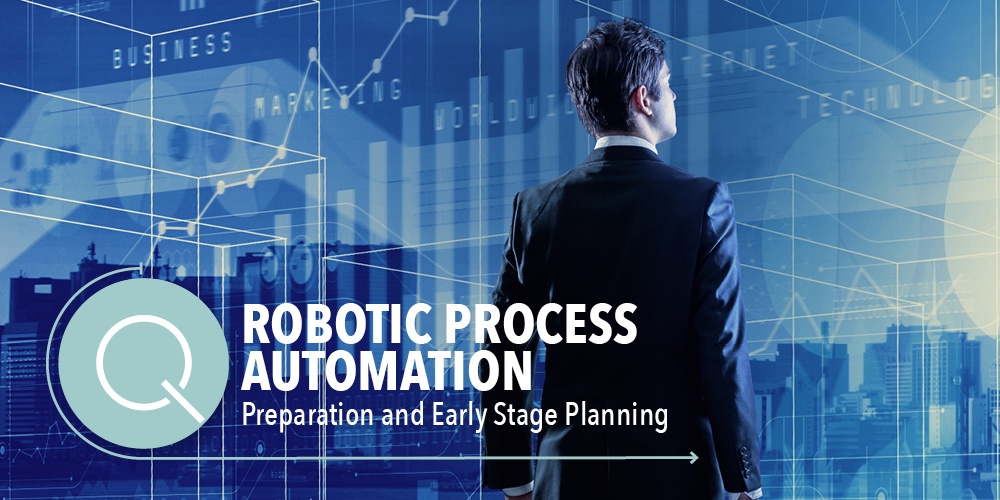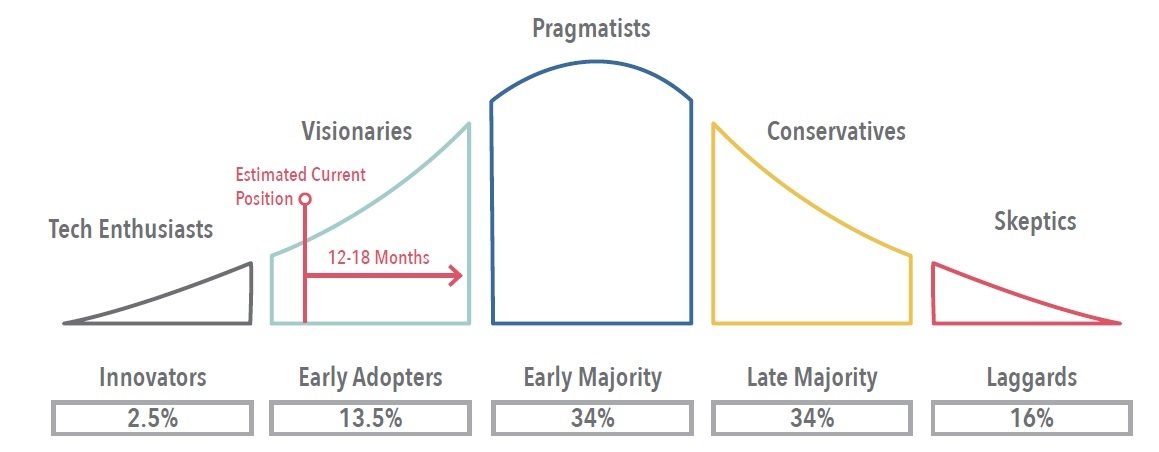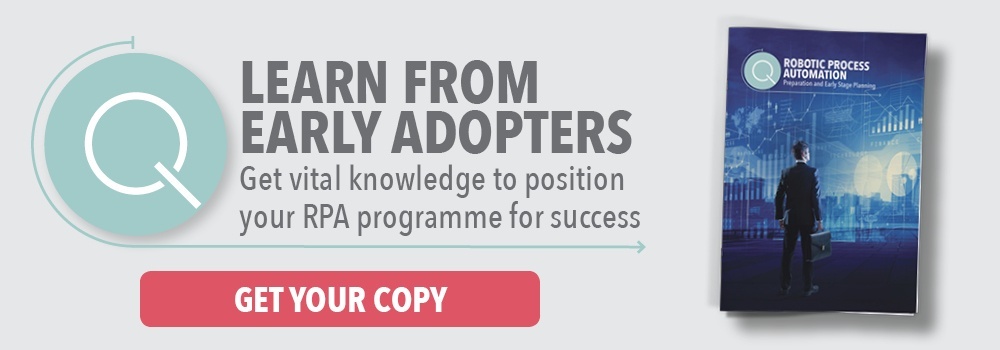Quanton is excited to announce the release of our latest eBook, Robotic Process Automation – Early Stage Preparation and Planning, covering topics including benefits measurement, implementation risks, process selection, all designed to help New Zealand organisations make informed decisions regarding RPA.

Both globally and locally the adoption of Robotic Process Automation (RPA) as a strategic capability has firmly taken hold, but we remain in the early-stages of adoption.
Interest and adoption of RPA are rapidly growing. Figures obtained from Google show that (New Zealand originating) average monthly search volume for Robotic Process Automation (RPA) grew 128% between January and November 2017 and average monthly search volume for leading RPA tools (Blue Prism, UiPath and Automation Anywhere) grew 141% between January 2017 and January 2018.
Based on our knowledge of the New Zealand market we estimate there are now 15-20 active RPA programmes.

Regarding adoption we expect to move into the early majority (For enterprises $100m revenue plus) of the market over the next 12-18 months. The long-time frame is anticipated based on the complex decision-making process around RPA adoption.
But growth in demand and interest is not necessarily translating into success. In recent commentary, Professor Leslie Willcocks (London School of Economics) suggested that anecdotal reports and information are suggesting that between 30-50% of RPA programmes are stalling, failing to scale, being abandoned ore moving to other solutions.
Combining knowledge from independent research, especially from the London School of Economics and Horses for Sources (HfS), as well as from our observations working directly with New Zealand organisations, our latest guide is written to provide New Zealand organisations with knowledge that will support planning and assessment of RPA, enabling organisations to make strategic and informed decisions and position their RPA programme for success.
In more comprehensive research the London School of Economics identified 40 risks that affect RPA programmes and placed them in 8 overarching risk categories. When viewed in this manner it was apparent to us that four of the eight or 50% of risk categories will be faced by organisations in the planning and preparation stages. The fifth category directly affected the launch of an RPA programme. In short, the greatest risks faced by an RPA programme are in the preparation and planning stages.
The potential scale of RPA application will be different for New Zealand enterprises.
We are now also highly aware that the application of RPA is not the same for New Zealand organisations as it is for the global case studies. When we look for sources of information to inform strategic decisions we find global case studies claiming triple figure return on investment and 3-month pay-back periods. These are all true – but for the global organisations. The organisation in one of the case studies we reviewed had 21,000 staff and were executing 400,000 – 500,000 transactions per month through automated processing.
The message is simple. Most New Zealand organisations just don’t have the same scale as the large foreign case study organisations. That statement is not intended to belittle the size, successes or achievements of any New Zealand business and is stated as a reality of the size of the market that we operate.
This should not also suggest that New Zealand’s relatively smaller scale means that the benefits are eroded or unachievable. In the words of Dawie Oliver, Westpac New Zealand CIO, “as a relatively small country, we compete against the behemoths of our industry, (and) what we need is every advantage to punch above our weight.”
The reality is that in global businesses, single processes consume multiple software robots. In New Zealand businesses it is often the case that one process consumes 10% of a software robot. The opportunity is for New Zealand businesses to be clever about how they apply RPA to achieve the required benefits.
We recently participated in the Back-Office Transformation Conference, where we were lucky enough to hear from New Zealand organisations such as Bartercard and Hawkes Bay Regional Council. Consistent messages were evident between speakers, two of which are choose the right technology solution and choose the right partner – both of which we view as being extremely critical to the success of an RPA programme. Supporting the importance of understanding how to identify the right technology solution, in 2016 research from the London School of Economics counted 39 tools being sold as RPA and 120 tools being sold with some form of cognitive automation. To this end, we’ve dedicated two comprehensive sections to these topics with the aim of enabling organisations to complete targeted due diligence processes.
A key part of the guide is the section on how to prepare for an RPA implementation. In many of the forums that we participate in at the moment, we hear consistent questions such as “where I look to find processes suitable for automation?”, or “how do we approach RPA?”. The concluding section of the guide focuses exclusively on the key steps that we would suggest an organisation takes to approach an RPA programme. The intent of this section is to provide organisations with a high-level path which can be followed to assess RPA as a function and make a strategic and informed decision about the potential for RPA capability in your organisation.
Perhaps most importantly the guide is written by people who are working with New Zealand enterprises to implement RPA programmes including Sam Osborne, who was responsible for the first RPA implementation in the country. Ensuring depth and quality of content the guide is built on the contributions of five other authors all with unique skills and experience including global RPA delivery, project management, process improvement and organisational change.
The potential benefits and value that can be achieved through RPA are clear. Deploying RPA however, seems deceptively simple with limited transformational pain, which is a driver for the significant interest from enterprise business. In bringing these challenges to light, it is not our intent to suggest that the risk outweighs the benefit, or that organisations should avoid RPA. None of these challenges or risks are such that they can’t be overcome or mitigated. Our intent is, however, to arm organisations with the knowledge they require to make strategic and informed decisions regarding the adoption and successful implementation of RPA. We do this covering key topics such as implementation risks, RPA myths, Identifying processes for automation, benefits realisations and much more.


